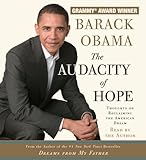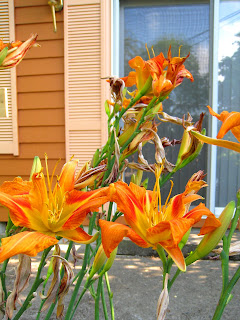Back in May I just had to stop my intensive reflection on No Time to Lose: A Timely Guide to the Way of the Bodhisattva by Pema Chodron. I did finish the readings and listened to the final class online, and am ready to wind this up. I'll be busy with several other papers for my Zen Center's Seminary Program for classes I took several years ago. I'm not the only one who didn't get those papers done, but we've now been given a deadline and I hope I can meet it.
To Recap:
To be a bodhisattva, one needs to cultivate bodhichitta. Here's what I said about that:
I have been aware of this term for a long time, and personally I feel it has a strong quality of unconditional love to it, but to attach a quality to it is to dissect it, and I'm not sure it is dissectable. H.H. the Dalai Lama said, "The wish for perfect enlightenment for others is bodhichitta." I think in real-life, everyday you-and-me-are-bodhisattvas terms, it means we wish others could awaken to the suffering they create for themselves and just let it go, let it dissolve. The same goes for our own selves.
If one must translate it, I kind of prefer the "awakened heart" translation. It is an open, spacious, uncramped heart awareness that comes before thought, in spite of thought, in between the thought that clouds up the mind. It is a clarity that can grok the effects of karma, in one's self or others, and in the same instant know the boundlessness that can change that karma.
To cultivate bodhichitta, we must take notice, and develop clear intention. It is like a flash of lightning, and illuminates the black clouds of karma. With practice that flash can become more sustained. It doesn't happen instantaneously. In
Chapters 2 and 3, we learn how to prepare. In making offerings, bowing, and confession, we open inner doorways to seeing our own self-absorption with clarity and humility. To be locked into the pain of suffering, to judge others and our own selves negatively, is to be self-absorbed and ruled by karma. These acts help focus attention on the beginningless nature of our own and others' karma. With this openness, we can also be more open to understanding impermanence, our own karmic wake, and how to stop its negative effects. Then comes commitment, and this would include the bodhisattva vow.
Chapter 4 is about paying attention, or attentiveness, and about meeting emotional entanglements with skill. These things reverberate with me very much, as for so many years my focus and vow was to Pay Attention, and to work through karmic knots.
The second part of Chapter 4 is all about how the kleshas get their grip on us and we can turn down that path to self-betrayal.
5 ways we succumb to kleshas1. We are enslaved by them. 2. We welcome them. They give us identity. Chodron gives a good question as crucible:
"If I strengthen this habit, will it bring suffering or relief?" 3. Kleshas, and their effect of suffering, stick around for a long, long time. They are entrenched. Ignoring them allows them to thrive, and keeps us asleep when given glimpses of our own buddha nature. 4. If you let them, they will magnify.
5. There will be no peace until each one of us can be peace.
This is the way of looking at the bodhisattva path that no one
can be enlightened until all are enlightened. Until each heart contains the understanding and skill to dissolve kleshas and nurture love, none of us can experience a world free from violent aggression and greed.
On the flip side, as long as society collectively
endorses greed, ignorance, and violence, it is
supremely difficult for individuals to find and stick to this Way. Pacifism is a long slow bodhisattva road.
To break the grip of the kleshas: Pay Attention. I said:
This is the funny thing. We defend this self, these identities wrapped around the entities born of kleshas, and all the while it is the stuff of smoke and mirrors. This becomes clear with steady intention, attention, and time. In the clear bright space that is bodhichitta that is left when the kleshas dissolve, here there is no self left to defend. There is no war because there is no Other.
The work of Chapters 1-4 can be giddy and eye-opening, but the vigilance as found in
Chapter 5 is where we find depth and staying power. Chodron tells us the Vajrayana method is
shamatha meditation. This sounds an awful lot like my Soto Zen's method of
shikantaza. We turn the gaze inward, but then we also act in the world. If we try to do the second without the first, and I think most of the world does, we lack clarity and ability to give an appropriate 'friendly word of welcome.' If we try to do the first without the second, we really do set ourselves apart from the world in a selfish way. In the beginning, learning to do this awareness practice can be very self-involved.
The Three Disciplines here are the same as my tradition's
Three Pure Precepts.
1. Cease from evil. 2. Do only good. 3. Do good for others. Another way to put it: Stop. Look for good to do. Listen for the good that is needed. Chodron puts it this way:
not causing harm, gathering virtue, and benefiting others.
 The Prosecution of George W Bush for Murder by Vincent Bugliosi
The Prosecution of George W Bush for Murder by Vincent Bugliosi








